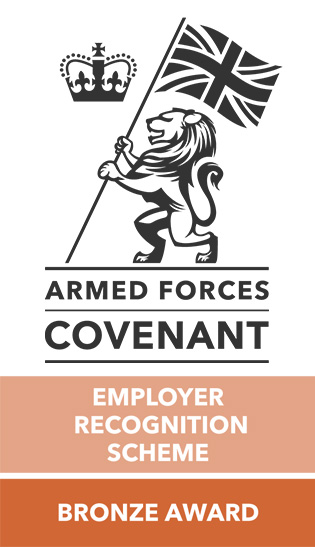A practical guide to PTSD support
Recognising that many current and former UK Service personnel have been deeply affected by the recent military withdrawal from Afghanistan, Ahmed Al-Nahhas, head of the Military Claims Team at Bolt Burdon Kemp, shines a spotlight on PTSD and the support available to those who may be struggling with this potentially debilitating condition or caring for someone who is …

The events that unfolded during the recent exit of UK and US forces from Afghanistan came as a great surprise to many, and the abrupt and violent end to the occupation has been worsened by the steady rise of a humanitarian and economic crisis in the country, which may last for many more years to come.
Service personnel and veterans across the UK have felt these events keenly, and many of my clients have found this period distressing. For those who have experienced mental health illnesses, including post-traumatic stress disorder (PTSD) because of the war, this might be an especially difficult time. Some have been asking themselves whether the war in Afghanistan and their service in it was worthwhile, or whether their hope to bring positive change and stability to the region has amounted to anything.
I cannot begin to help answer these questions for my clients. What I hope to do in this article, however, is provide a short guide to PTSD and give some encouragement to those readers who may be struggling with the condition or caring for someone who is.
What is PTSD and how is it caused?
PTSD is a psychiatric disorder that can affect anyone in any occupation. It is not unique to Service personnel, but is normally caused by a traumatic event or a combination of several traumatic events. Examples include:
- being in danger and/or feeling helpless
- seeing others in danger and/or being helpless to assist them
- being responsible or believing that you are responsible for death or injury to others.
PTSD may cause a number of symptoms. These include:
- flashbacks
- nightmares
- feeling distracted, a lack of focus
- irritability and anger-management issues
- hypervigilance (being constantly on guard)
- feeling sick and/or dizzy, or having headaches
- experiencing chest and/or stomach pain.
For those who may have experienced repeated traumatic events, PTSD can become more complex and persistent. It is then referred to as ‘complex PTSD’, or CPTSD.
PTSD can surface immediately after a traumatic event or, in some cases, can take many weeks, months or even years to manifest. This is sometimes referred to as ‘delayed-onset PTSD’. Sometimes this delayed onset is triggered by another traumatic event, such as a car accident. I have received enquiries from personnel whose symptoms have started to surface only following the recent events in Afghanistan, for example.
Thinking about Service personnel, most but not all are likely to have developed the condition as a result of exposure in combat to stressful and life-threatening events. Typically, they will relive these traumatic incidents through nightmares and flashbacks. They may also experience an onset of symptoms as a result of ‘triggers’ in their everyday life. A trigger is an event that sparks a flashback and other symptoms. Triggers can vary a great deal from person to person.
PTSD indicators
Those with PTSD will sometimes engage in other behaviours that may be a clear sign that they are suffering. For example:
- they may avoid people, busy places and work
- they may have difficulty maintaining relationships
- they may turn to alcohol and/or drugs to help manage their symptoms
- in other cases, they may resort to self-harm or consider suicide.
PTSD is a very complex condition and it is difficult to say whether any individual will recover and when. Most medical experts agree that early intervention and treatment will result in a better outcome. A lot can depend on the severity of the condition and the support available. Families can play a pivotal role here, although the stress can naturally cause marital and other problems at home. Some patients take months to recover, others years.
What treatment is available?
It is important to know that just because you or a loved one has experienced some of the symptoms mentioned above, it does not mean that they suffer with PTSD. You will need a diagnosis from a doctor. The starting point for anyone suffering with mental health issues is to arrange an appointment with their GP or Medical Officer, who should then arrange for them to be assessed by a specialist and for a treatment plan to be agreed.
Most NHS Trusts now have a referral service to a dedicated Veterans Mental Health and Wellbeing Service. Click here for more information.
In respect of treatment, there are several types that are currently recommended, including the following.
- Watchful waiting: some who suffer PTSD symptoms improve within a short space of time, sometimes referred to as ‘partial PTSD’. For these early phases of the condition, a period of observing symptoms is recommended, to see if they improve or worsen.
- Antidepressants: approximately 60–70% of those with PTSD respond well to treatment with antidepressants.
- Trauma-focused cognitive behavioural therapy (TF-CBT): this is a specialised form of talking therapy.
- Eye movement desensitisation reprocessing (EMDR): a relatively new treatment that involves using eye movement, finger tapping or sound to alter how a patient perceives the trauma.
- Group therapy: some patients have described an improvement in their symptoms having been able to discuss them openly with others, including other sufferers of PTSD.
In practice, a combination of treatments may be used and, depending on how the patient may react to each, their treatment plan can be tailored to suit their needs.
Other support
There are a number of charities and organisations that might be able to help you or your loved one. Here are just a few:
- The Samaritans
- Combat Stress
- PTSD Resolution
- Salute Her (a charity focused on supporting Service women).
Talk to your Chain of Command or employer
For many sufferers of PTSD it is a daunting task to discuss their condition with their Chain of Command or employer. I would encourage you to do so, though, because you should not suffer in silence and, with the right support, you will have a better chance of recovering and returning to work. Leaving the condition untreated may make matters worse in the long run.
If you are still serving you should discuss your symptoms with your Medical Officer. After a diagnosis is made, you should receive support through Welfare; if you are medically downgraded, then your duties may be limited to less stressful tasks and/or those that are unlikely to trigger your symptoms. This should give you the best chance of recovery while you are receiving treatment. You should make sure that you discuss any sick chit or medical downgrade with your superiors.
If you have already left the Armed Forces and work as a civilian, then your employer will be obliged to make reasonable adjustments to your work. Again, this may involve reducing your hours or changing your duties so that you have less chance of being triggered and a greater chance of recovery. Employers are not allowed to discriminate against employees with PTSD, which will normally be defined as a disability in law and therefore offer you some protection and special rights.
Compensation
There are two routes to compensation open for Service personnel who have suffered with PTSD.
- You may be entitled to an award under the Armed Forces Compensation Scheme (AFCS). This is a ‘no fault’ scheme, so you will only need to prove that your condition is a result of your service. A claim should be made within seven years of injury or, in cases involving PTSD, this deadline will usually run from the date of diagnosis. Click here to find out more.
- You may also be entitled to bring a civil claim. This is normally limited to claims involving a worsening of PTSD symptoms, if you can prove that the condition should have been diagnosed or treated sooner, for example. The deadline to issue a civil claim is normally three years from the date of injury or diagnosis, whichever is later. You may be able to extend the time for making a claim in certain circumstances, but you will need to take advice from a specialist lawyer in the field about this.
You can bring both an AFCS claim and civil claim, but you cannot recover twice for the same loss, so you may have to give credit for any AFCS award when bringing a civil claim, for example.
Summary
- PTSD is an anxiety disorder that can be caused when you witness or suffer a traumatic event.
- With the right support and treatment, you or your loved one will get better. The process can take time.
- If you think you suffer with PTSD, you should speak to your Medical Officer or GP and take advice. You should also speak to your Chain of Command or employer.
- You may have a right to bring a claim for compensation under the AFCS and through the civil courts. You should take advice from a specialist solicitor about these options as soon as possible because strict time limits might apply.

About the author
Ahmed Al-Nahhas is a partner and head of the Military Claims Team at Bolt Burdon Kemp Solicitors.











